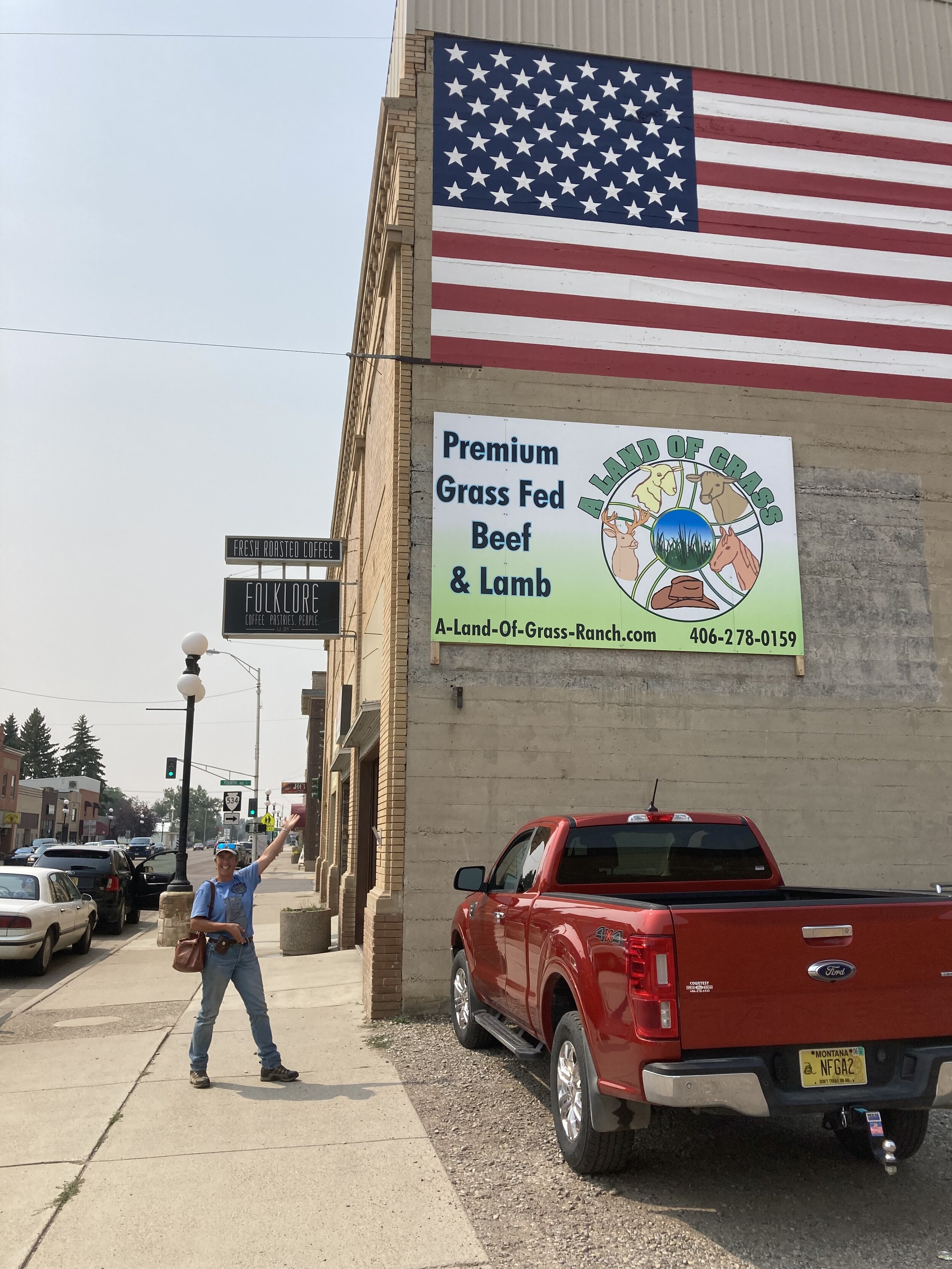Sign of the Times
I hung a sign on my new old building last week.
The sign invites people to buy beef and lamb from my website or to call my landline.
Almost immediately, local residents asked where I have a storefront.
I don’t have a storefront and I don’t intend to have a storefront.
The overhead would kill me.
I would need to increase the price of my meat by about a dollar per pound just to pay the rent, utilities and a wage for someone to stand behind the counter.
Beef and lamb are already priced almost beyond the reach of the average family.
I want people to afford to eat meat. It’s packed with protein and it is low-fat and delicious.
And their choices keep me in business.
Conrad businesses are raising wages, right along with businesses nationwide that are struggling to find workers, but prices for food are rising faster.
In the meantime, some people who see my sign circle around the corner to one of my local competitors who does have a storefront.
That’s okay.
We’re all in this together.
But as I think about a long-term business strategy, beyond overhead expenses and the local competition, I think the retail sector is changing.
It’s changing quickly and globally.
I see people making more purchases online and more services conducted virtually.
Within the next few years, I expect the most stable rural business – after ranching – to be delivery services.
If those delivery people are smart, they will start driving 4-wheel-drive trucks, though, especially on my driveway. Maybe those trucks will be completely electric -- if they can develop a battery that will hold a charge when the temperature drops to -40 and the wind blows.
Don’t get me wrong.
I certainly see a reason for small towns to exist and for small business owners to provide goods and services.
I want to be able to pick up groceries as soon as I run out of milk.
When something breaks, I want to find the parts to fix it.
I need to buy fuel without driving 75 miles to fill up.
I want to enjoy some entertainment once in a while – to think about something else for a few minutes instead of obsessing about the various components of ranching.
I know my neighbors like to decorate their homes with unusual and trendy things. I don’t fit that particular demographic, but I need access to a plumber or electrician or contractor once in a while.
The irony of buying a huge building right when our entire way of buying things is changing so quickly isn’t lost on me.
Half of this 1920 mercantile stands empty now, after once providing jobs for more than 50 people who sold local meat, dairy and bakery products; clothes, household supplies and furniture.
Photos from the 1950s show cars filling the streets in front of this building.
Concrete piers keep this building solidly in place. Bricks fired from mud dug from the basement were laid with the expectation that Conrad would have a reason to exist forever.
Now, this building hosts a software company, a gun store, an insurance agent and a hip coffeeshop. These businesses have become the solid concrete foundation of my town.
The social centers are the grocery store where I catch up on the news with acquaintances in every aisle and local co-op that offers gas and convenience foods.
Just like the expectation that the competition to fill consumer needs is limited to a 20-mile radius, the expectation that a sign on a building indicates a storefront is becoming outdated.
Conrad certainly has a place in the future, but the survival of my beloved town depends on its citizens recognizing the signs of the times.
